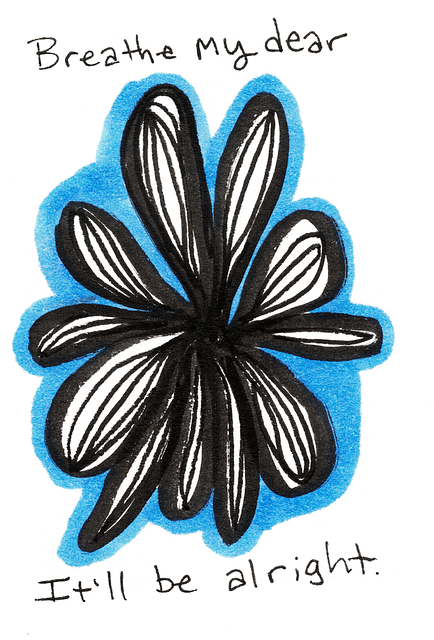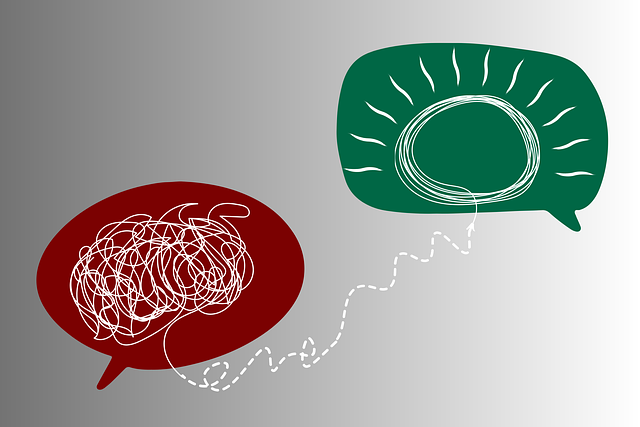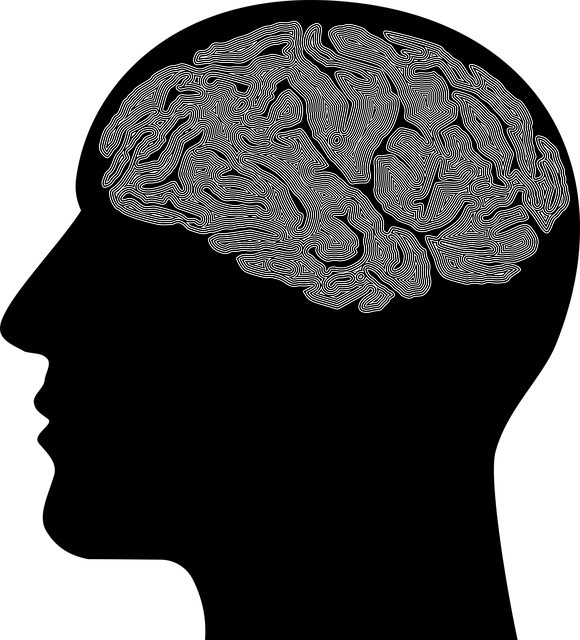Arvada Relationship Issues Therapy focuses on equipping individuals with essential coping skills for managing emotional challenges in relationships. By identifying triggers through self-awareness exercises and journaling, clients learn effective strategies like empathy building and crisis intervention. This personalized approach enhances emotional intelligence, improves mental wellness, and enables individuals to navigate life's challenges with resilience. The therapy offers specialized programs, including social skills training and public awareness campaigns, to empower clients in managing stress, anxiety, and past relationship issues, ultimately fostering stronger connections.
Coping skills development is a vital aspect of emotional well-being, especially in navigating therapy. This article explores strategies for enhancing resilience through understanding coping mechanisms and their profound impact on mental health treatments. We delve into identifying personal triggers and stressors, offering effective techniques to foster emotional balance. Additionally, it examines how Arvada Relationship Issues Therapy integrates these skills, providing a holistic approach to coping. By the end, readers will grasp practical ways to incorporate healthy coping strategies into daily life.
- Understanding Coping Skills and Their Significance in Therapy
- Identifying Personal Triggers and Stressors
- Building Effective Coping Strategies for Emotional Well-being
- Integrating Coping Techniques into Daily Life: Arvada Relationship Issues Therapy Perspective
Understanding Coping Skills and Their Significance in Therapy

Coping skills are a set of strategies individuals use to navigate life’s challenges, manage stress, and maintain mental well-being. In the context of Arvada Relationship Issues Therapy, understanding these skills is paramount as they serve as building blocks for therapeutic growth. Therapists play a crucial role in teaching clients effective coping mechanisms tailored to their unique needs, helping them overcome relationship obstacles and improve overall mental health.
The significance of coping skills in therapy cannot be overstated. They empower individuals to manage intense emotions, reduce the impact of stressful events, and foster resilience. By integrating strategies like empathy building and crisis intervention guidance, therapists can enable clients to confront relationship issues with enhanced emotional intelligence and adaptability. This, in turn, contributes to more successful outcomes in therapy, empowering individuals to lead fulfilling lives despite challenges.
Identifying Personal Triggers and Stressors

Many people often overlook the significance of understanding personal triggers and stressors when it comes to coping skills development. Identifying what sets off emotional or physical reactions is a crucial step in managing them effectively. This process involves paying close attention to one’s thoughts, feelings, and behaviors, especially in relation to specific situations or interactions. For instance, an individual might realize that certain social gatherings trigger anxiety due to past relationship issues, requiring them to develop strategies to navigate such events healthily.
In Arvada Relationship Issues Therapy, professionals guide clients through this process by offering Mental Wellness Coaching Programs Development tailored to their needs. This may include Mental Wellness Journaling Exercise Guidance to help individuals reflect on and identify patterns in their stressors. By understanding the root causes of stress and distress, one can work towards Self-Esteem Improvement, ultimately fostering better mental wellness and resilience.
Building Effective Coping Strategies for Emotional Well-being

Developing effective coping strategies is a cornerstone of emotional well-being, and Arvada Relationship Issues Therapy offers valuable insights into this process. Coping skills are the tools we use to navigate life’s challenges and manage our emotions in healthy ways. By learning these strategies, individuals can improve their resilience and overall mental health. One key aspect is understanding that different situations may require distinct coping mechanisms; thus, developing a toolkit of various techniques becomes essential.
Social Skills Training plays a significant role in enhancing emotional regulation, enabling people to respond adaptively to stressful scenarios. Public Awareness Campaigns Development can also contribute by educating communities on the importance of mental health and providing resources for effective coping. Through therapy and self-reflection, individuals can identify personal triggers and practice mindfulness, two fundamental skills that empower them to cope with life’s ups and downs more effectively.
Integrating Coping Techniques into Daily Life: Arvada Relationship Issues Therapy Perspective

In today’s fast-paced world, integrating effective coping techniques into daily life is essential for maintaining mental well-being, especially when addressing relationship issues. Arvada Relationship Issues Therapy offers a comprehensive approach to help individuals develop robust coping skills tailored to their unique challenges. The therapy focuses on empowering clients with practical tools and strategies to navigate difficult emotions and conflicts in relationships. Through individual or couples counseling sessions, therapists guide clients in exploring healthy communication strategies, fostering self-esteem improvement, and identifying constructive ways to manage stress and anxiety related to relationship problems.
By integrating these techniques into their daily routines, individuals can enhance their resilience and better cope with life’s challenges. The Arvada Relationship Issues Therapy perspective emphasizes the importance of understanding individual needs and preferences in coping skill development. This personalized approach ensures that clients acquire strategies aligned with their specific circumstances, fostering sustainable mental health and stronger relationships.
Coping skills development is an essential aspect of therapy, enabling individuals to navigate life’s challenges with resilience. By understanding personal triggers and learning effective strategies, one can enhance emotional well-being. Integrating these techniques into daily routines, such as those employed by Arvada Relationship Issues Therapy, offers a practical approach to managing stress and fostering a healthier, more balanced life. Through dedicated practice, individuals can revolutionize their coping mechanisms and thrive despite life’s complexities.














